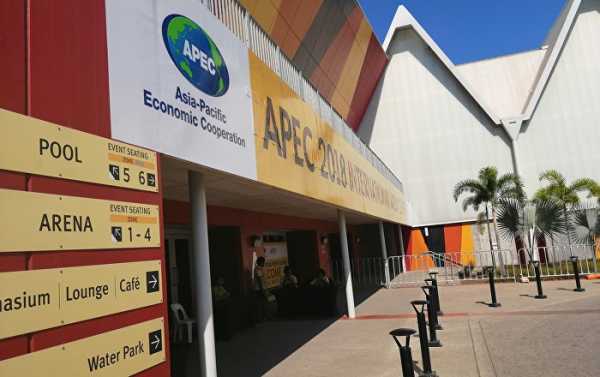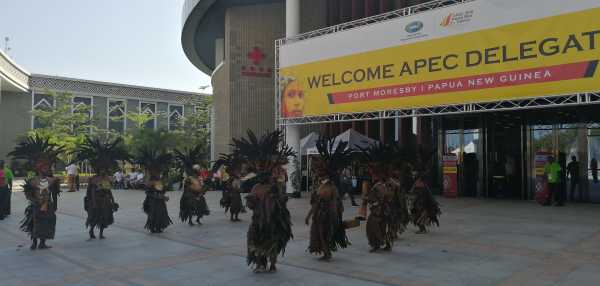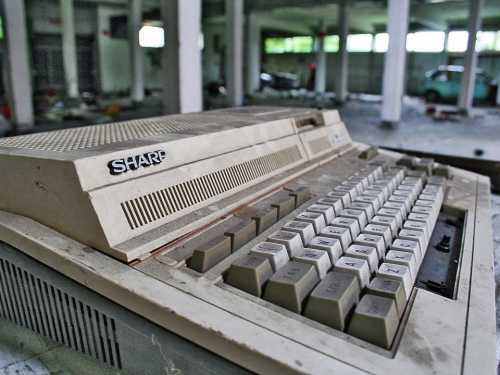
While most of the leaders of the 21 Asia Pacific nations are still preparing for their trip to the APEC summit in Papua New Guinea, which is scheduled for this weekend, the island nation is already looking forward to reaping the benefits of hosting the big international meeting.
If you ask locals in Port Moresby what they think about APEC 2018, the first issue they would probably bring up is money. From millions of dollars spent by the local government on organizing the event to millions in foreign currency dished out by APEC nations as financial aid to help build the venues in the capital — no penny goes unnoticed by the Papuan public and the media.
John is a taxi driver who often picks up passengers at Port Moresby’s Jacksons International Airport. On the way to the APEC Media Centre, he’s talking about what most visitors would probably be curious about at the moment — security, hotels, and the way his community has changed as the host city of the Asia Pacific Economic Cooperation meetings.
According to Papua New Guinea’s APEC Minister Justin Tkatchenko, his nation spent roughly 250 million US dollars on preparations for the summit and the bloc’s other meetings. But he sees such expenditures as insignificant, compared to the short-term gains and long-term advantages that his nation will get.
“The media coverage that we will get alone — you can’t buy that,” Tkatchenko told Sputnik. “Having 800 media people here promoting APEC, promoting Port Moresby, promoting our country — trying to pay for that to spread throughout the world costs millions as well. So, that all comes free. And then you’ve got the issue of all future projects coming up with America and all the “the Big Five” countries; that will be announced here at APEC and after as well.”

APEC 2018
The US administration seems to be “slow on the draw” in advancing its interests in the region, with Trump’s administration reportedly planning to announce a $60 billion aid package for the Indo-Pacific nations during the APEC summit, while China has already taken serious steps to secure its economic positions in the region.
Papua New Guinea officials expect that infrastructure built for the summit will become a lasting legacy, and that money spent on hosting the event will come back within 10 to 15 years in the form of foreign investment.
A similar strategy has proven to be successful for other APEC nations. Russia’s Vladivostok hosted the APEC summit in 2012.
As a result, the city received new bypass roads, a remodelled airport terminal, a world-class higher education facility and the Russky Bridge, which has already become a landmark.
“Look at the bridge — it’s beautiful!” says Senior Official of Russia for APEC Valery Sorokin. “It’s one of the symbols of the ‘New Russia’ nowadays, it’s really beautiful. Aside from being beautiful, it’s very useful for the city’s infrastructure as well. This is what I wanted to say: hosting the APEC, holding the APEC summit, helped, in a way, the Russian government to do something concrete to develop the infrastructure of the city.”
Nevertheless, in the case of Papua New Guinea, there may be obstacles in the way. The government has often been accused of both corruption and waste in the years before the APEC events, and many fear that the country failed to use many advantages connected with its host status.
Most infrastructural changes have been made in the capital Port Moresby; the rest of the country is still suffering from poverty, crime, problems with modern health care and education.
So, the next few years would probably be crucial in understanding whether the “APEC effect” has worked for Papua New Guinea and whether the nation will be able to overcome its problems by becoming an attractive spot for tourists and investors.
The Asia-Pacific Economic Cooperation is a club of 21 Pacific Rim countries, which was created in 1989 to establish new regional markets and free trade zones. Next year’s APEC events will be held in Chile.
Sourse: sputniknews.com






